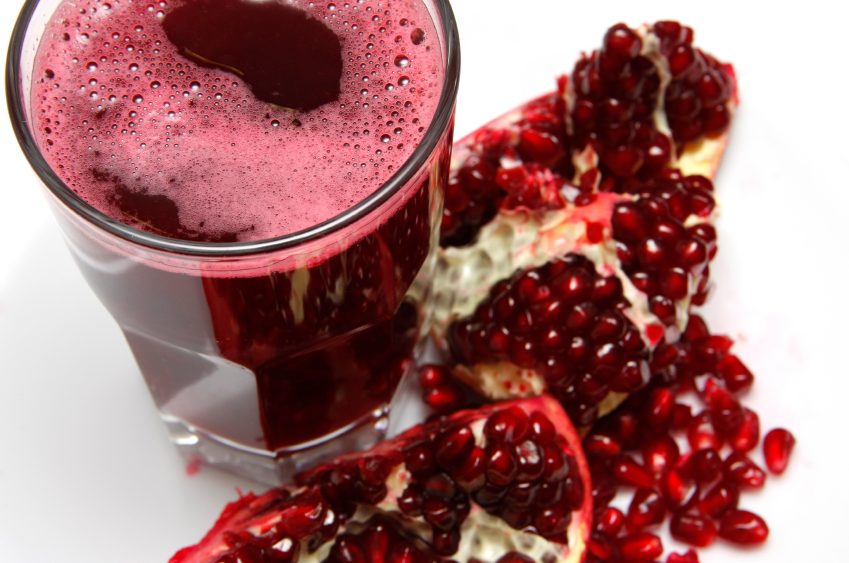
Advertisement
Long before pomegranates were integrated into the health food and smoothie scene, they were considered a “sacred fruit” in many different cultures. The Greeks, for instance, regarded pomegranates as the “fruit of the underworld” because they were used by Hades to bind Persephone to his domain. With their ruby red color and jewel-like seeds, it’s no wonder these awesome fruits have been highly valued for ages.
But the true value of pomegranates lies beyond their physical appearance. These fruits host a plethora of nutrients that provide several health benefits and make them one of the healthiest fruits around. In fact, a recent study revealed that pomegranates can stop and even reverse the progression of cardiovascular disease.
Published in the journal Atherosclerosis, the study used a breed of mice that was prone to developing coronary artery blockages. Researchers gave the three-week old animals pomegranate extract through their drinking water for two weeks.
According to the results of the study, pomegranate extract served as a natural broom that cleaned plaque sticking to the mice’s coronary arteries. This prevented atherosclerosis, a condition in which the walls of the arteries grow thick due to the accumulation of fats and other materials that eventually turn into plaque.
Atherosclerosis is the primary cause of heart attacks. The pomegranate extract-based treatment very clearly reduced the presence of atherosclerotic plaques in the aortic sinus. It also decreased the percentage of blocked coronary arteries.
Famous scientist Linus Pauling believed cardiovascular disease develops in the absence of vitamin C. Humans are unable to bio-synthesize vitamin C so we need to take it from external sources such as fruits.
The benefits of pomegranates
According to GreenMedInfo, the astringent taste in the mouth when consuming pomegranate seeds or juice is similar to the fruit’s cleansing effect on the interior walls of the arteries.
The lining of human mouths and arteries is made of epithelial cells, which constitute the epithelium. The astringent effect in the mouth results from the shrinkage and disinfection of epithelium layers. A similar process takes place in your arteries.
GreenMedInfo also reported that a separate study in 2004 discovered that year-long consumption of pomegranate juice could reverse the build-up of deadly plaque in the arteries of patients suffering from plaque blockage of 70–90% of their internal carotid arteries.
“The mean intima media thickness of the left and right common carotid arteries in severe carotid artery stenosis patients that consumed pomegranate juice for up to one year was reduced after three, six, nine, and 12 months of pomegranate juice consumption by 13 percent, 22 percent, 26 percent, and 35 percent, respectively,” said the 2004 Israeli study.
According to the researchers, pomegranate exhibited three properties responsible for its effectiveness against atherosclerosis.
First, pomegranate possesses antioxidant properties. It prevents heart disease from overcoming the body’s ability to purge toxins or repair damage. Second, the fruit was proven to lower systolic blood pressure. It can heal the endothelium lining the inner part of the artery, allowing it to relax and function properly. Finally, pomegranate has a positive effect on plaque-causing lesions. By reducing cholesterol and lipid peroxides as well as preventing oxidation of low-density lipoprotein, pomegranate makes the lesion smaller and less capable of causing atherosclerosis.
GreenMedInfo called the finding “quite revolutionary.” Current medical knowledge diagnoses carotid artery stenosis (the abnormal narrowing of the major blood vessels that supply the brain and head) through the size of the plaque-causing lesion. No one has looked at the lesion’s quality.
The second study also suggested that measuring the quantity of cholesterol in the blood does not give an accurate picture of the body’s health. Low-density lipoproteins remained benign unless oxidized. By improving the body’s internal environment, pomegranates reduced the rate at which bad cholesterol got oxidized into plaque, thereby preventing atherosclerosis. Finally, the study showed that pomegranate juice did not interfere with conventional drugs. In fact, it either complemented or compensated for them.
All the participants in the second study were also undergoing drug-based treatment. Several members of the control group (who did not receive any pomegranate) deteriorated despite taking drugs.
Sources:
Advertisements







